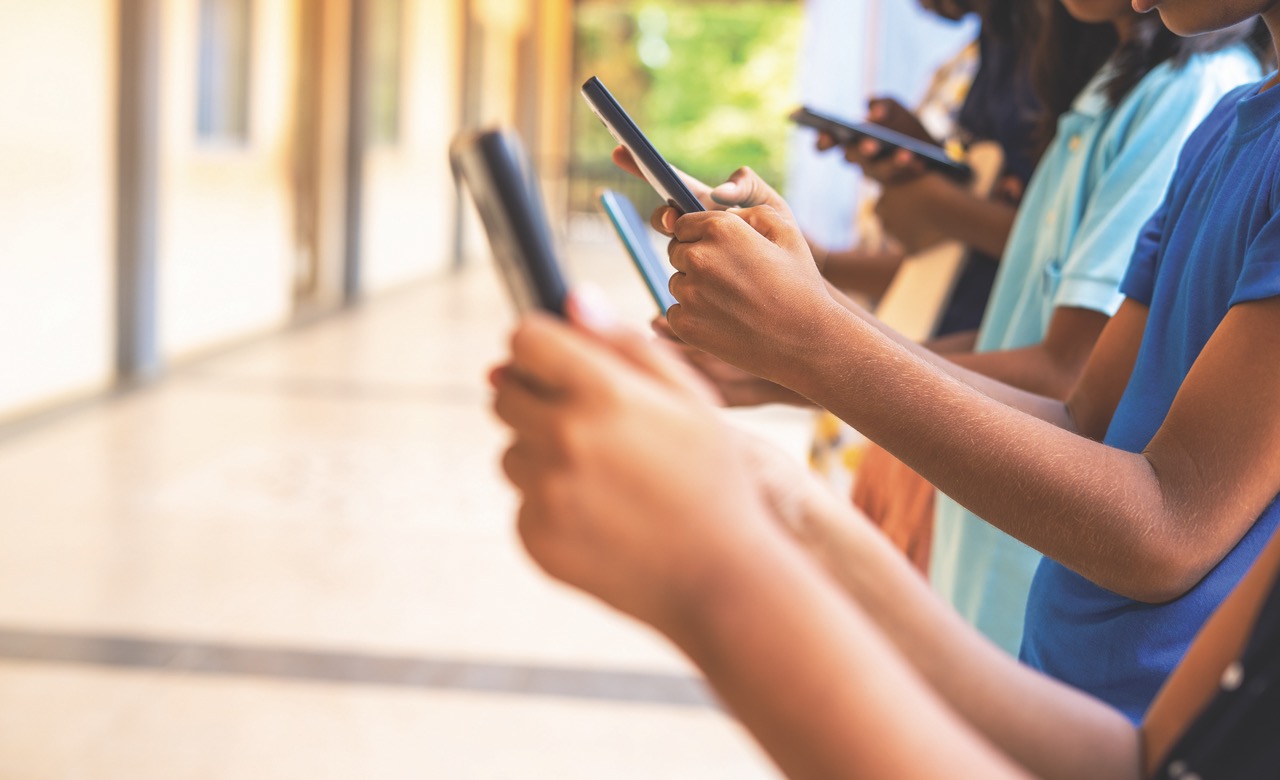As the school year gets underway, elementary school students will no longer be able to freely use their phones in the classroom.
In April, the provincial government required all school boards in the province to impose rules restricting personal digital devices.
The Vancouver School Board fell in line with the rule change in June, setting limits that apply to students from kindergarten to Grade 7. Schools in the UBC neighbourhoods and the endowment lands are run by the Vancouver School Board.
Students who bring their devices to school must have them in silent mode in their bags or lockers while on school grounds.
Premier David Eby said Aug. 27 that all school boards in B.C. now have limits in place that follow the provincial rules, although boards were given some discretion on how tight the limits could be.
The government’s decision to restrict smartphone use in schools is one of several moves it is taking to keep children safe from online threats. The province has introduced measures to order the removal of explicit images from the internet and pursue predators. It has also has passed legislation setting safe zones around elementary and secondary schools.
“Today,” Eby says, “kids live with different challenges than they did a generation ago, and they face them all in the palm of their hand.”
“While cellphones, the internet and social media help us connect with each other, they also present risks that can harm kids. The impact and influence of these tools is so great, and the corporations so powerful, it can be overwhelming for parents.”
The restrictions come following concerns that personal mobile devices are a distraction and can cause disturbances that prevent focused learning.
Education Minister Rachna Singh said the government’s actions will ensure that schools remain an environment for learning and critical thinking, and allow students learn to use technology responsibly and at the right time.
While the rules have their supporters and follow changes in jurisdictions across the country and around the world, one UBC professor says digital devices can sometimes play a positive role in a child’s learning and development.
Ron Darvin, an assistant professor in UBC’s language and literacy education department, recently told UBC News that there are benefits to having phones in the classroom.
“While phones can be a distraction, they are also powerful learning tools. Phones allow students to research, write, verify information, and learn languages,” Darvin said.
“To ensure effective use in the classroom, teachers can design activities where students use phones for learning tasks. For example, students can use their phones to explore digital skills like posting on Instagram or making TikTok videos, and teachers can help them connect these activities to school tasks like writing or presenting.”
The Vancouver School Board carved out some exemptions.
Using personal devices will be permitted for education purposes as directed by educators, for medical purposes, and to support diverse educational needs such as assistive technology.
ARIJIT JOSHI IS A SECOND-YEAR STUDENT IN THE MASTER’S JOURNALISM PROGRAM AT UBC.
